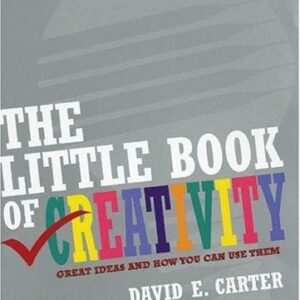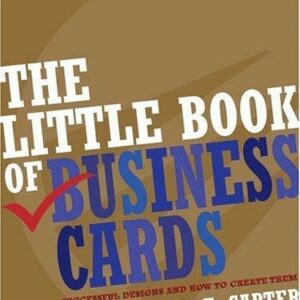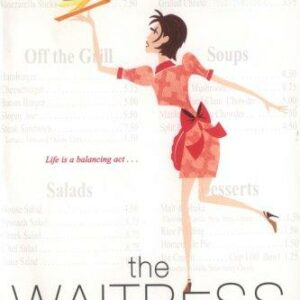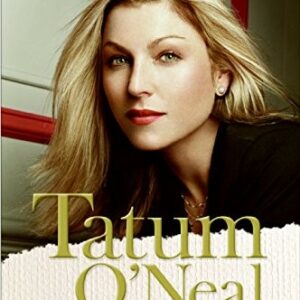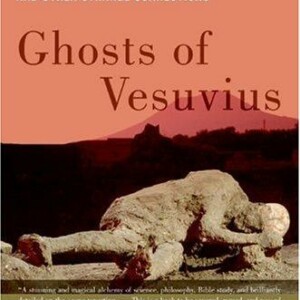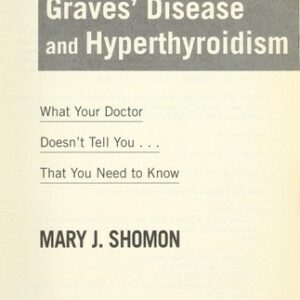Love’s Labor’s Lost
$14.00
| Title | Range | Discount |
|---|---|---|
| Trade Discount | 5 + | 25% |
- Description
- Additional information
Description
The acclaimed Pelican Shakespeare series edited by A. R. Braunmuller and Stephen Orgel
The legendary Pelican Shakespeare series features authoritative and meticulously researched texts paired with scholarship by renowned Shakespeareans. Each book includes an essay on the theatrical world of Shakespeare’s time, an introduction to the individual play, and a detailed note on the text used. Updated by general editors Stephen Orgel and A. R. Braunmuller, these easy-to-read editions incorporate over thirty years of Shakespeare scholarship undertaken since the original series, edited by Alfred Harbage, appeared between 1956 and 1967. With definitive texts and illuminating essays, the Pelican Shakespeare will remain a valued resource for students, teachers, and theater professionals for many years to come.
For more than seventy years, Penguin has been the leading publisher of classic literature in the English-speaking world. With more than 1,700 titles, Penguin Classics represents a global bookshelf of the best works throughout history and across genres and disciplines. Readers trust the series to provide authoritative texts enhanced by introductions and notes by distinguished scholars and contemporary authors, as well as up-to-date translations by award-winning translators.
“Gorgeous new Shakespeare paperbacks.”
—Marlon James, author of A Brief History of Seven Killings
“I have been using the Pelican Shakespeare for years in my lecture course–it’s invaluable, the best individual-volume series available for students.”
—Marjorie Garber, William R. Kenan, Jr. Professor of English and Visual and Environmental Studies, Harvard University William Shakespeare was born in Stratford-upon-Avon in April, 1564, and his birth is traditionally celebrated on April 23. The facts of his life, known from surviving documents, are sparse. He died on April 23, 1616, and was buried in Holy Trinity Church, Stratford.
A. R. Braunmuller is Distinguished Professor of English and Comparative Literature at the University of California at Los Angeles. He has written critical volumes on George Peele and George Chapman and has edited plays in both the Oxford (King John) and Cambridge (Macbeth) series of Shakespeare editions. He is also general editor of The New Cambridge Shakespeare.
Stephen Orgel is the Jackson Eli Reynolds Professor of the Humanities at Stanford University and general editor of the Cambridge Studies in Renaissance Literature and Culture. His books include Imagining Shakespeare, The Authentic Shakespeare, Impersonations: The Performance of Gender in Shakespeare’s England and The Illusion of Power.Love’s Labor’s Lost
¥ I.1 Enter Ferdinand King of Navarre, Berowne, Longaville, and Dumaine.
king
Let fame, that all hunt after in their lives,
Live registered upon our brazen tombs
2
And then grace us in the disgrace of death,
3
When, spite of cormorant devouring Time,
4
Th’ endeavor of this present breath may buy
5
That honor which shall bate his scythe’s keen edge
6
And make us heirs of all eternity.
Therefore, brave conquerors-for so you are
That war against your own affections
9
And the huge army of the world’s desires-
10
Our late edict shall strongly stand in force:
11
Navarre shall be the wonder of the world;
Our court shall be a little academe,
13
Still and contemplative in living art.
14
You three-Berowne, Dumaine, and Longaville-
Have sworn for three years’ term to live with me
My fellow scholars, and to keep those statutes
That are recorded in this schedule here.
18
Your oaths are passed; and now subscribe your names,
19
That his own hand may strike his honor down
20
That violates the smallest branch herein.
21
If you are armed to do as sworn to do,
22
Subscribe to your deep oaths, and keep it too.
longaville
I am resolved. ‘Tis but a three years’ fast.
The mind shall banquet though the body pine.
Fat paunches have lean pates, and dainty bits
26
Make rich the ribs, but bankrupt quite the wits.
dumaine
My loving lord, Dumaine is mortified.
28
The grosser manner of these world’s delights
He throws upon the gross world’s baser slaves.
30
To love, to wealth, to pomp, I pine and die,
With all these living in philosophy.
32
berowne
I can but say their protestation over.
33
So much, dear liege, I have already sworn,
34
That is, to live and study here three years.
But there are other strict observances:
As not to see a woman in that term,
Which I hope well is not enrolld there;
38
And one day in a week to touch no food,
And but one meal on every day beside,
40
The which I hope is not enrolld there;
And then to sleep but three hours in the night,
And not be seen to wink of all the day
43
(When I was wont to think no harm all night
44
And make a dark night too of half the day),
Which I hope well is not enrolld there.
O, these are barren tasks, too hard to keep-
Not to see ladies, study, fast, not sleep.
king
Your oath is passed to pass away from these.
berowne
Let me say no, my liege, an if you please.
50
I only swore to study with your grace
And stay here in your court for three years’ space.
longaville
You swore to that, Berowne, and to the rest.
berowne
By yea and nay, sir, then I swore in jest.
54
What is the end of study, let me know?
king
Why, that to know which else we should not know.
berowne
Things hid and barred, you mean, from common sense?
57
king
Ay, that is study’s godlike recompense.
berowne
Come on then, I will swear to study so,
59
To know the thing I am forbid to know,
60
As thus-to study where I well may dine
When I to feast expressly am forbid;
Or study where to meet some mistress fine
When mistresses from common sense are hid;
Or having sworn too hard-a-keeping oath,
Study to break it and not break my troth.
If study’s gain be thus, and this be so,
Study knows that which yet it doth not know.
68
Swear me to this, and I will ne’er say no.
king
These be the stops that hinder study quite,
70
And train our intellects to vain delight.
71
berowne
Why, all delights are vain, but that most vain
72
Which, with pain purchased, doth inherit pain:
73
As, painfully to pore upon a book,
To seek the light of truth, while truth the while
Doth falsely blind the eyesight of his look.
76
Light seeking light doth light of light beguile;
77
So, ere you find where light in darkness lies,
Your light grows dark by losing of your eyes.
79
Study me how to please the eye indeed,
80
By fixing it upon a fairer eye,
81
Who dazzling so, that eye shall be his heed,
82
And give him light that it was blinded by.
83
Study is like the heaven’s glorious sun,
That will not be deep-searched with saucy looks:
85
Small have continual plodders ever won,
Save base authority from others’ books.
These earthly godfathers of heaven’s lights,
88
That give a name to every fixd star,
Have no more profit of their shining nights
90
Than those that walk and wot not what they are.
91
Too much to know is to know nought but fame;
92
And every godfather can give a name.
93
king
How well he’s read to reason against reading!
94
dumaine
Proceeded well, to stop all good proceeding!
95
longaville
He weeds the corn, and still lets grow the weeding.
96
berowne
The spring is near, when green geese are a-breeding.
97
dumaine
How follows that?
98
berowne Fit in his place and time.
dumaine
In reason nothing.
99
berowne Something then in rhyme.
king
Berowne is like an envious sneaping frost
100
That bites the first-born infants of the spring.
101
berowne
Well, say I am; why should proud summer boast
102
Before the birds have any cause to sing?
Why should I joy in any abortive birth?
At Christmas I no more desire a rose
Than wish a snow in May’s newfangled shows,
But like of each thing that in season grows.
107
So you, to study now it is too late,
108
Climb o’er the house to unlock the little gate.
109
king
Well, sit you out. Go home, Berowne. Adieu.
110
berowne
No, my good lord, I have sworn to stay with you;
And though I have for barbarism spoke more
112
Than for that angel knowledge you can say,
Yet confident I’ll keep what I have sworn,
And bide the penance of each three years’ day.
115
Give me the paper, let me read the same,
And to the strict’st decrees I’ll write my name.
king [Handing over the paper]
How well this yielding rescues thee from shame!
berowne [Reads.] “Item: that no woman shall come within a mile of my court-” Hath this been proclaimed?
120
longaville Four days ago.
berowne Let’s see the penalty. “-on pain of losing her tongue.” Who devised this penalty?
longaville
Marry, that did I.
124
berowne Sweet lord, and why?
longaville
To fright them hence with that dread penalty.
berowne
A dangerous law against gentility!
126
[Reads.]
”Item: if any man be seen to talk with a woman within the term of three years, he shall endure such public shame as the rest of the court can possible devise.”
This article, my liege, yourself must break;
130
For well you know here comes in embassy
The French king’s daughter with yourself to speak,
A maid of grace and complete majesty,
About surrender up of Aquitaine
134
To her decrepit, sick, and bedrid father.
Therefore this article is made in vain,
Or vainly comes th’ admird princess hither.
king
What say you, lords? why, this was quite forgot.
berowne
So study evermore is overshot.
While it doth study to have what it would,
140
It doth forget to do the thing it should,
And when it hath the thing it hunteth most,
‘Tis won as towns with fire-so won, so lost.
143
king
We must of force dispense with this decree;
144
She must lie here on mere necessity.
145
berowne
Necessity will make us all forsworn
Three thousand times within this three years’ space:
For every man with his affects is born,
148
Not by might mastered, but by special grace.
149
If I break faith, this word shall speak for me:
150
I am forsworn “on mere necessity.”
So to the laws at large I write my name;
[Signs.]
And he that breaks them in the least degree
Stands in attainder of eternal shame.
154
Suggestions are to other as to me;
155
But I believe, although I seem so loath,
I am the last that will last keep his oath.
157
But is there no quick recreation granted?
158
king
Ay, that there is. Our court you know is haunted
159
With a refind traveler of Spain,
160
A man in all the world’s new fashion planted,
161
That hath a mint of phrases in his brain;
One who the music of his own vain tongue
163
Doth ravish like enchanting harmony;
A man of complements, whom right and wrong
165
Have chose as umpire of their mutiny.
166
This child of fancy, that Armado hight,
167
For interim to our studies shall relate
168
In highborn words the worth of many a knight
169
From tawny Spain, lost in the world’s debate.
170
How you delight, my lords, I know not, I;
But, I protest, I love to hear him lie,
And I will use him for my minstrelsy.
173
berowne
Armado is a most illustrious wight,
A man of fire-new words, fashion’s own knight.
175
longaville
Costard the swain and he shall be our sport,
176
And so to study three years is but short.
Enter [Dull,] a Constable with a letter, with Costard.
dull Which is the duke’s own person?
178
berowne This, fellow. What wouldst?
dull I myself reprehend his own person, for I am his grace’s farborough; but I would see his own person in flesh and blood.
180
181
berowne This is he.
dull Se–or Arm-Arm-commends you. There’s villainy abroad. This letter will tell you more.
184
costard Sir, the contempts thereof are as touching me.
186
king A letter from the magnificent Armado.
187
berowne How low soever the matter, I hope in God for high words.
longaville A high hope for a low heaven. God grant us patience!
190
berowne To hear, or forbear hearing?
192
longaville To hear meekly, sir, and to laugh moderately, or to forbear both.
berowne Well, sir, be it as the style shall give us cause to climb in the merriness.
195
costard The matter is to me, sir, as concerning Jaquenetta. The manner of it is, I was taken with the manner.
197
198
berowne In what manner?
costard In manner and form following, sir; all those three: I was seen with her in the manor house, sitting with her upon the form, and taken following her into the park; which, put together, is “in manner and form following.” Now, sir, for the manner: it is the manner of a man to speak to a woman. For the form: in some form.
200
202
berowne For the following, sir?
costard As it shall follow in my correction, and God defend the right!
208
king Will you hear this letter with attention?
210
berowne As we would hear an oracle.
costard Such is the simplicity of man to hearken after the flesh.
212
king [Reads.] “Great deputy, the welkin’s vicegerent, and sole dominator of Navarre, my soul’s earth’s God, and body’s fostering patron-“
214
costard Not a word of Costard yet.
king “So it is-“
costard It may be so; but if he say it is so, he is, in telling true, but so.
220
king Peace!
costard Be to me and every man that dares not fight.
king No words!
costard Of other men’s secrets, I beseech you.
king “So it is, besieged with sable-colored melancholy, I did commend the black-oppressing humor to the most wholesome physic of thy health-giving air; and, as I am a gentleman, betook myself to walk. The time when? About the sixth hour, when beasts most graze, birds best peck, and men sit down to that nourishment which is called supper: so much for the time when. Now for the ground which-which, I mean, I walked upon: it is ycleped thy park. Then for the place where- where, I mean, I did encounter that obscene and most preposterous event that draweth from my snow-white pen the ebon-colored ink, which here thou viewest, beholdest, surveyest, or seest. But to the place where; it standeth north-northeast and by east from the west corner of thy curious-knotted garden. There did I see that low-spirited swain, that base minnow of thy mirth-“
225
226
227
230
233
235
236
239
240
costard Me?
king “that unlettered small-knowing soul-“
costard Me?
king “that shallow vassal-“
244
costard Still me.
king “which, as I remember, hight Costard-“
246
costard O me!
king “sorted and consorted, contrary to thy established proclaimed edict and continent canon, with, with, O with-but with this I passion to say wherewith-“
248
249
250
costard With a wench.
king “with a child of our grandmother Eve, a female, or, for thy more sweet understanding, a woman. Him I (as my ever-esteemed duty pricks me on) have sent to thee, to receive the meed of punishment, by thy sweet grace’s officer, Anthony Dull, a man of good repute, carriage, bearing, and estimation.”
254
255
dull Me, an’t shall please you, I am Anthony Dull.
king “For Jaquenetta (so is the weaker vessel called), which I apprehended with the aforesaid swain, I keep her as a vessel of thy law’s fury; and shall, at the least of thy sweet notice, bring her to trial. Thine in all compliments of devoted and heart-burning heat of duty, Don Adriano de Armado.”
260
261
262
berowne This is not so well as I looked for, but the best that ever I heard.
king Ay, the best for the worst. But, sirrah, what say you to this?
267
costard Sir, I confess the wench.
king Did you hear the proclamation?
270
costard I do confess much of the hearing it, but little of the marking of it.
272
king It was proclaimed a year’s imprisonment to be taken with a wench.
costard I was taken with none, sir, I was taken with a damsel.
king Well, it was proclaimed “damsel.”
costard This was no damsel neither, sir, she was a virgin.
king It is so varied too, for it was proclaimed “virgin.”
279
costard If it were, I deny her virginity. I was taken with a maid.
280
king This maid will not serve your turn, sir.
282
costard This maid will serve my turn, sir.
king Sir, I will pronounce your sentence: you shall fast a week with bran and water.
costard I had rather pray a month with mutton and porridge.
286
king
And Don Armado shall be your keeper.
My Lord Berowne, see him delivered o’er,
And go we, lords, to put in practice thatUS
Additional information
| Dimensions | 0.4600 × 5.1200 × 7.7200 in |
|---|---|
| Series | |
| Imprint | |
| Format | |
| ISBN-13 | |
| ISBN-10 | |
| Author | William Shakespeare, A. R. Braunmuller, Stephen Orgel, Peter Holland |
| Audience | |
| BISAC | |
| Subjects | literary criticism, William Shakespeare, book lover, shakespeare for kids, book lovers gifts, classic literature, classic books, fiction books, screenplay, classics books, plays, book gifts, nerd gifts, book lover gifts, DRA003000, shakespeare gifts, gifts for readers book lovers, shakespeare complete works, shakespeare books, play, classic, fiction, classics, novels, book lovers, classic novels, library, anthology, Literature, book club, Shakespeare, literary fiction, essays, gifts for readers, literary gifts, gifts for book lovers, LIT015000 |



